
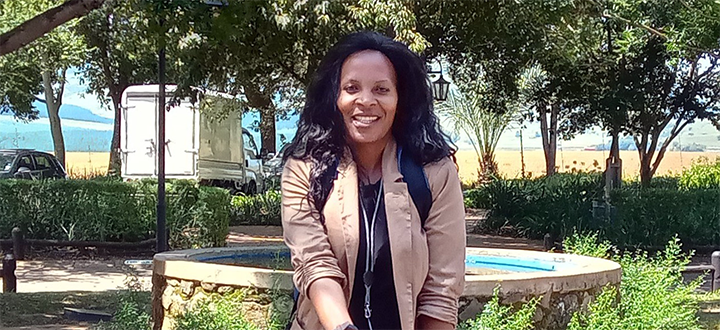
Celia Muzeza
From a young age, Celia Muzeza has been fascinated by plastics. "I grew up in a society where plastic plates, cups and used containers never grew old enough to leave my mother’s kitchen. Reused plastic containers could be found in the pantry, in our school bags and in the fridge," she reflects.
As she grew older, plastics took on a different shape. "No longer did we have to use the old ice cream container for food storage, but plastic brand names such as Tupperware emerged and were associated with different socioeconomic classes." Plastics could now also be utilised at different temperatures as a cooking utensil in the microwave.
However, over the years, the use of plastic food packaging has become a global cause of concern because of its ability to leach into food.
Due to the consumption of phthalates (chemicals that make plastic soft and flexible), contaminated food poses serious health risks, which numerous consumers, not only in South Africa, may not be aware of.
"I was motivated to take up this research and be part of the Unisa team, which would scientifically inform about existing phthalates in commonly utilised food packaging wares and raise awareness in the context of South Africa," says Muzeza.
Furthermore, she wants to contribute solutions for reducing phthalate pollution from wastewater treatment plants to protect human and environmental health.
Muzeza is a PhD candidate in Environmental Science at the College of Agriculture and Environmental Sciences. She is also a fully funded and mentored student at the College of Science, Engineering and Technology in the Institute for Nanotechnology and Water Sustainability (iNanoWS) at Unisa
She earned a Master of Science (MSc) in Safety, Health and Environmental Management with a merit class at the Midlands State University, and a Bachelor of Science (BSc) Honours in Environmental Science and Health at the National University of Science and Technology, both in Zimbabwe.
Muzeza’s current research at Unisa focuses on the leaching of priority phthalate plasticisers from plastic food packaging materials, tracing their occurrence and removal efficiency in the wastewater and sludge treatment lines of wastewater treatment plants in Gauteng, South Africa.
Her research is aimed at educating the South African consumer on safe methods of utilising plastic food packaging containers, which have become an entrenched part of our lives, evidenced by the numerous uses of plastic food packaging in the domestic space, which recently includes cooking and warming food in microwaves.
Furthermore, adding knowledge backed by scientific data on existing conventional wastewater treatment plants, sludge treatment processes and phthalates removal efficiencies. This ensures accurate and informed decision-making towards phthalate monitoring and regulations for use in industries and the Department of Water and Sanitation, to safeguard human and environmental health.
The College of Graduate Studies, in collaboration with the National Student Representative Council (NSRC), annually hosts the Unisa Research and Innovation Postgraduate student showcase. The showcase is a beacon for the future of innovative research and how it impacts our societies.
"I was a recipient of the best oral presentation in the Natural and Physical Sciences discipline under the doctoral category at the 2024 showcase," she says.
The oral presentation demonstrated possible non-dietary exposure effects (accidental ingestion, inhalation and dermal exposure) of utilising wastewater treatment plant sludge as a soil endowment. Muzeza says this is a critical area in South Africa because commercial agriculture is a vast sector that provides jobs to a significant population.
Effects of agricultural activities, such as sludge spreading on land, affect the immediate and surrounding population.
"No words can explain the numerous benefits I gained from being part of the postgraduate student showcase family," says Muzeza. "I will forever treasure the networking with students from other faculties at Unisa, the showcase team and esteemed academics that were part of the judging team."
Above all, she says she owes the experience to her academic supervisory team, Prof Veronica Ngole-Jeme, Prof Titus AM Msagati, Dr Thabile Lukhele and iNanoWS.
Muzeza has received other accolades for her research work. She won the best student poster presentation at the Analitika 2024 Conference in Central Drakensburg, KwaZulu-Natal.
She was placed in second place for oral presentation in the PhD category at the third Postgraduate Student Symposium hosted by the College of Agriculture and Environmental Sciences and the College of Science, Engineering and Technology at Unisa.
Additionally, she won third place in the oral presentation at the Annual Metabolomics South Africa Symposium and AGM 2024 at Unisa.
* By Mpho Moloele, PR and Communications, Department of Research, Innovation and Commercialisation
Publish date: 2025-06-26 00:00:00.0
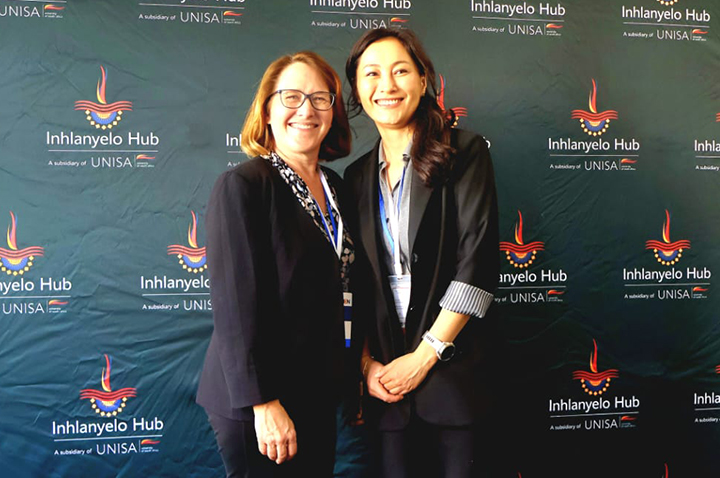 Unisa roundtable focuses on empowering SA women to lead in innovation
Unisa roundtable focuses on empowering SA women to lead in innovation
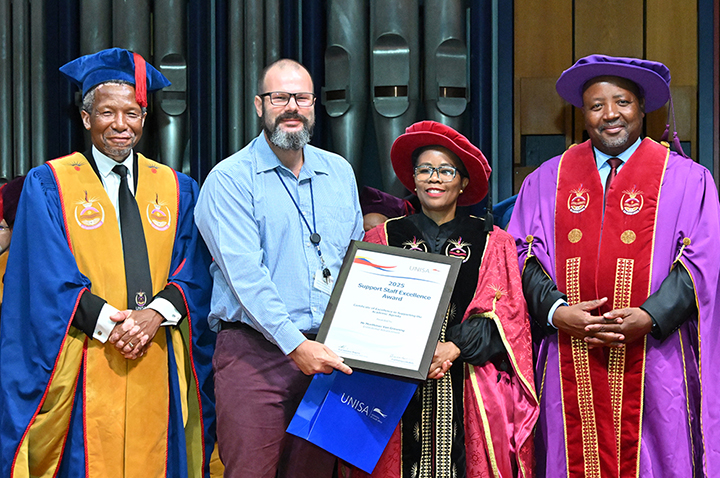 Unisan recognised for web excellence
Unisan recognised for web excellence
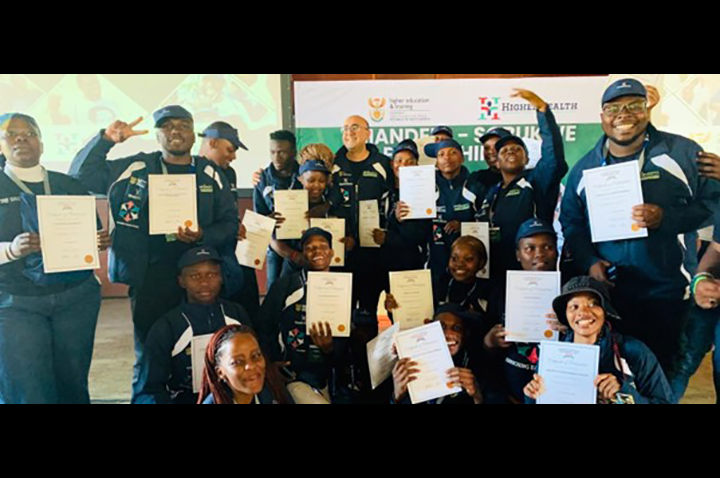 Office of the Dean of Students participates in leadership camp
Office of the Dean of Students participates in leadership camp
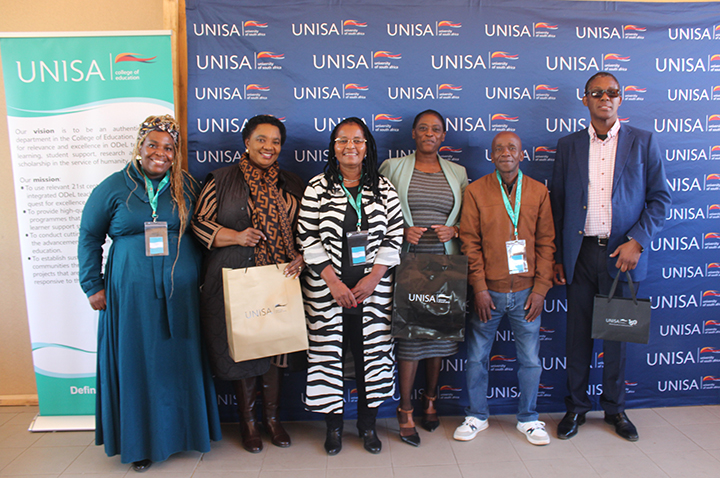 Unisa project fosters digital and pedagogical innovation in Limpopo schools
Unisa project fosters digital and pedagogical innovation in Limpopo schools
 Unisa student wins prestigious national leadership award
Unisa student wins prestigious national leadership award